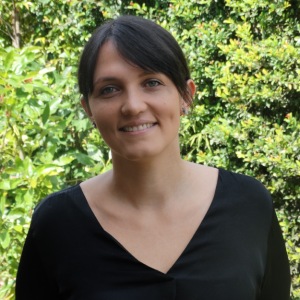Maria Jose Bermeo Valencia

Maria Jose Bermeo Valencia
Doctor of Education
Perfil
Áreas de interés: Política y práctica educativa en contextos impactados por conflicto y crisis. Educación en diversidad, derechos humanos y pedagogías para la paz. Sistemas de resolución de conflictos en instituciones educativas. Educación comparada Educación urbana Formación docente Métodos de investigación cualitativos.
Correo electrónico: [email protected]
Cursos Recientes
- 2021
CURRÍCULO Y PEDAGOGÍA
Primer Periodo
Maestría
TRABAJO DE GRADO I
Primer Periodo
Maestría
Productos Recientes
Títulos Académicos Recientes
Doctor of Education
Doctorado
Columbia University
2016
Estados Unidos
Master of Education
Maestría
Columbia University
2011
Estados Unidos
Proyectos Recientes
- 2018
- Producing educational drug policy: A comparative case study in the Ecuadorian-Colombian Pacific border region.
Duración: 36 meses
PR.3.2018.5147
The present study will examine how education policy related to the illicit drug economy is formulated and enacted in the Pacific border region of Ecuador and Colombia. Drawing on a comparative case study approach, the research will trace the production of educational drug policy through the intensive qualitative study of two local sites: a school in Tumaco, Nariño and a school in San Lorenzo, Esmeraldas. Through participant observation, semi-structured interviews and document analysis, the research will examine how educational actors in these two sites respond to the presence of the illicit drug trade and what policy their decision-making processes produce. It will also explore how school-level decision-making relates to other scales of education governance, such as the municipal, provincial/departmental, and national scales, and to transnational phenomena, such as the illicit drug economy, international drug policy, and bilateral cooperation efforts. This study will contribute to understanding of how education policy and practice intersects with drug policy, and how educational sites in the Pacific border region of Ecuador and Colombia are affected by, and respond to, the illicit drug trade in a context of shifting drug policies and security dynamics.
Cursos
- 2021
CURRÍCULO Y PEDAGOGÍA
Primer Periodo
Maestría
TRABAJO DE GRADO I
Primer Periodo
Maestría
ELABORACIÓN DE PROPUESTA II
Primer Periodo
Doctorado
TESIS 2
Primer Periodo
Maestría
TRABAJO DE GRADO II
Primer Periodo
Maestría
EDUCACIÓN, JUVENTUD Y DROGAS
Primer Periodo
Licenciatura
- 2020
- 2019
- 2018
- 2017
Productos
Títulos académicos
Doctor of Education
Doctorado
Columbia University
2016
Estados Unidos
Master of Education
Maestría
Columbia University
2011
Estados Unidos
Master of Arts in International Relations
Maestría
University Of St Andrews (Escocia)
2003
Escocia
Certificate in Cooperation and Conflict Resolution
Especialización
Columbia University
2010
Estados Unidos
Proyectos
- 2018
- Producing educational drug policy: A comparative case study in the Ecuadorian-Colombian Pacific border region.
Duración: 36 meses
PR.3.2018.5147
The present study will examine how education policy related to the illicit drug economy is formulated and enacted in the Pacific border region of Ecuador and Colombia. Drawing on a comparative case study approach, the research will trace the production of educational drug policy through the intensive qualitative study of two local sites: a school in Tumaco, Nariño and a school in San Lorenzo, Esmeraldas. Through participant observation, semi-structured interviews and document analysis, the research will examine how educational actors in these two sites respond to the presence of the illicit drug trade and what policy their decision-making processes produce. It will also explore how school-level decision-making relates to other scales of education governance, such as the municipal, provincial/departmental, and national scales, and to transnational phenomena, such as the illicit drug economy, international drug policy, and bilateral cooperation efforts. This study will contribute to understanding of how education policy and practice intersects with drug policy, and how educational sites in the Pacific border region of Ecuador and Colombia are affected by, and respond to, the illicit drug trade in a context of shifting drug policies and security dynamics.